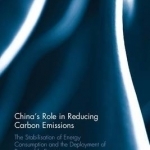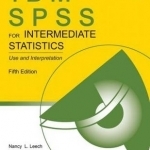The Comfort of People
Book
At the end of life, our comfort lies mainly in relationships. In this book, Daniel Miller, one of...

Data Driven Business: Use Real Numbers to Improve Your Business by 352%: 2016
Book
Every organisation likes to think it makes decisions based on evidence. Not just any evidence, but...

Integrated IT Performance Management
Book
If you are in search of real-world practical scenarios of IT performance management practices, with...
Theorizing in Contemporary Social Science: A Peircean Consensus?
Book
Social theory is generally seen as a necessary part of social science and is institutionalized as a...
Shared Authority: Courts and Legislatures in Legal Theory
Book
This new book advances a fresh philosophical account of the relationship between the legislature and...

Paradoxes of Green: Landscapes of a City-State
Book
This innovative multidisciplinary study considers the concept of green from multiple...

China's Role in Reducing Carbon Emissions: The Stabilisation of Energy Consumption and the Deployment of Renewable Energy
Book
China, a still developing economy comprising a fifth of the world's population, will play a key role...

SweepSouth
Lifestyle
App
Book a reliable home cleaner in seconds with the SweepSouth app. Available in major cities, a clean,...

IBM SPSS for Intermediate Statistics: Use and Interpretation
Nancy L. Leech, Karen Caplovitz Barrett and George A. Morgan
Book
Designed to help readers analyze and interpret research data using IBM SPSS, this user-friendly book...
Learn Apple Homekit on iOS: A Home Automation Guide for Developers, Designers, and Homeowners: 2017
Book
Learn the HomeKit platform structure and how it supports devices-existing and planned-and get a...
